Religion
Souad Mekhennet writes for The New York Times on the growing hostility toward religious minorities as election season approaches in the United States:
Muslims in Western countries say they have gotten used to the fact that as elections get closer, politicians pump up the volume of accusations against them, whether they are Sunni, Shiite or of another sect. In some European nations, it was the debate over women wearing the veil that set off the attacks. Now in the United States, where pivotal elections are looming, accusations against Muslims have reached a new level. It seems to some that the days of McCarthyism are back.
Read more here
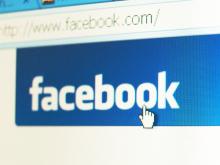
Meet the social media “nones.” A new survey finds that Americans, while mostly religious, generally do not use social media to supplement worship and mostly keep their faith private online.
The Public Religion Research Institute survey found about one in 20 Americans followed a religious leader on Twitter or Facebook. A similar number belonged to a religious or spiritual Facebook group.
The results seem to defy the familiar story of prominent religious leaders using social media to build a following – and a brand.
“We were surprised when this turned up really low levels of people engaging religion and faith online,” said PRRI research director Daniel Cox.
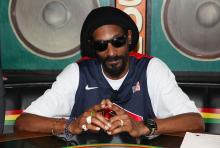
Back in in 1993, Snoop Dogg scored a huge hit with the hip-hop anthem “What’s My Name?” Announcing his conversion to Rastafarianism on Monday, the rapper unveiled a new answer to that lyrical question.
“I want to bury Snoop Dogg and become Snoop Lion,” he said at a press conference.
So, did the onetime gangsta rapper have to drop the "d-o-double-g" when he became a Rasta? Yes, and no, said Ennis Edmonds, a scholar at Kenyon College and an expert on Rastafarianism.
The religious movement doesn’t require converts to change their names. But the faith was born in Jamaica, where calling someone a dog is deeply insulting, Edmonds said.
“Rastas would probably see calling yourself a dog as an indication of lack of self-knowledge,” Edmonds said.
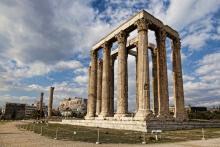
When the Summer Olympics opened in London, there was a version of a religious ritual in the Olympic oath, procession of athletes and lighting of the flame. This was no accident because the modern Olympics have religious roots, though they appear to have largely secular fruits.
I'm reminded of this fact because it was in London in 1908 that Anglican Bishop Ethelbert Talbot first said, "The most important thing in these Olympics is not so much winning as taking part" — a phrase that became part of the Olympic creed. He was following in the footsteps of the Rev. Henri Didon, a Catholic priest who gets credit for the official Olympic motto "citius, altius, fortius" (faster, higher, stronger).
The founder of the modern Olympics, Baron Pierre de Coubertin, was educated by Jesuits. "The first essential characteristic of the Olympics, both ancient as well as modern, is to be a religion … above and outside the churches," he said. He was influenced by proponents of "muscular Christianity," who turned away from traditional Christian contempt for the body and used sports as a method of strengthening faith and morality.
Muscular Christianity became popular in Victorian England and spread to the U.S., where it shaped the programs of the YMCA and Boy Scouts of America, as well as church sports leagues. Although it declined in mainline Protestantism in the 20th century, it remained strong in evangelical organizations, such as the Fellowship of Christian Athletes and Promise Keepers. Today, muscular Christianity is alive and well in professional athletes such as Tim Tebow and Jeremy Lin.
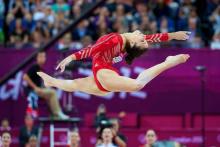
Americans cheered when Aly Raisman of Needham, Mass., won a gold medal on Tuesday in the women’s all-around gymnastics competition, but at least some American Jews likely cheered a little louder.
“For people who are part of a minority, to see one of your own have this international recognition gives you enormous satisfaction and pride,” said Rabbi Keith Stern of Temple Beth Avodah in Newton Centre, Mass., where Raisman has worshipped since childhood. “It lets you say, ‘Look at what we’ve managed to do.’”
Members of minority faiths in the U.S. — Jews, Muslims, Hindus and Sikhs — are rooting for U.S. Olympians and also saving a few extra cheers for their co-religionists, both Americans and athletes from other teams. Before they go to bed or when they wake up, they scan lists of medal winners and competition results, looking for names that might sound Jewish, Muslim, Hindu or Sikh.
But why?
In a sense, religion isn't supposed to matter in who a fan roots for, said Harold U. Ribalow, author of three books about Jewish athletes, trying to answer that question. But, he added, the evidence was overwhelming that people like to see those from their own groups do well, especially in the root-for-the-underdog world of sports.
Writing for The Huffington Post, Eric Sapp takes a closer look at a recent Pew Forum poll:
Here's a key point in the poll that didn't get much attention: 82 percent of those who know Obama is Christian say they are comfortable with his religion. So voters are basically twice as comfortable with Obama's faith when they know what it is. This is why faith outreach is so important (but more on that later).
Why does the fact that most voters are not comfortable with Obama's religion matter? More than two-thirds of voters (and seven-in-10 women voters) say they want a president with strong religious beliefs. As one might imagine, these numbers are even higher with religious populations. Eight-in-10 Protestants and three-in-four Catholic voters want a president with strong religious beliefs. And let's be honest, they aren't talking about wanting Obama to have strong Muslim beliefs (so the fact that 17 percent of voters think he's Muslim doesn't add to the plus column)!
Read more of Eric's analysis here
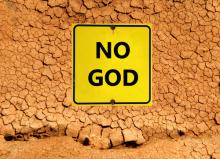
For the second time in less than a year, the Gallup poll reports that a majority of Americans would vote for an atheist for president.
The latest survey, from June, found that 54 percent of those asked said they would vote a “well- qualified” atheist into the Oval Office — the highest percentage since Gallup began asking the question in 1958, when only 18 percent said they would back a nonbeliever.
On the other hand, the survey showed that those who do not believe in God still come in behind every other group polled for, including gays and lesbians (68 percent) and Muslims (58 percent).
Still, an imaginary atheist candidate passed the 50 percent threshold for the first time when Gallup asked the question in August 2011, so the trend is upward.
“We have seen an enormous change over time in the willingness to vote for an atheist,” said Karlyn Bowman, a senior fellow at the American Enterprise Institute for Public Policy Research, which reports the numbers in its current newsletter.
“But I think the numbers also remind us that this is a deeply religious country. That doesn’t mean we are all going to church on Sunday, but that having religion in your life is valuable to most Americans and I think that explains the resistance.”
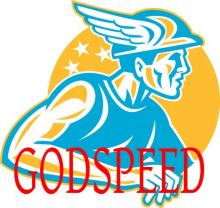
A 600-foot footrace was the only athletic event at the first Olympics, a festival held in 776 B.C. and dedicated to Zeus, the chief Greek god.
For the next millennium, Greeks gathered every four years in Olympia to honor Zeus through sports, sacrifices and hymns. The five-day festival brought the Greek world together in devotion to one deity.
What began in ancient Greece as a festival to honor a single god, Zeus, has now become an almost Olympian task, as organizers of the games navigate dozens of sacred fasts, religious rituals and holy days.
The London Olympics will try to accommodate religious athletes with 193 chaplains, a prayer room in every venue and a multifaith center in the Olympic Village.
Athletes at the ancient Olympics believed their training honored the gods, and victory was a sign of favor from a deity. As contests like wrestling, boxing, and horse racing were added to the Olympic roster, they supplemented devotional sacrifices, hymns, and ceremonies.
“The idea was that you were training to please Zeus. But part of the festival would be to visit the temple, visit the cult statues, making offerings, celebrating and seeing your family,” said David Gilman Romano, a professor of Greek archaeology at the University of Arizona.
The combination of Greek sport and worship led the Roman Emperor Theodosius I, a Christian, to ban the Olympics in 393 A.D.

It is difficult to discuss "hard topics" with people with whom I disagree.
When someone supports a political candidate whom I resist, holds to a theological understanding that I find confusing, or when I hear opposing points on climate change, poverty, global economics, human sexuality, etc., it is challenging to listen with a genuinely open ear.
However, what I have found is that, even if I feel passionate about a particular point of view, when I am able to open up and genuinely listen to others, great things take place throughout the exchange. Through honest and open interaction, an increased level of mutual respect and understanding is achieved, we learn to understand why things are perceived the way they are, and the overall strength of the relationship grows.
In our current North American climate of political polarization, religious division, and socio-economic seclusion, it is time to have more dialogue on — among other things — dialogue.
A friend of mine once said, “a true and genuine dialogue only takes place when each person is willing to be ‘converted’ to the other side of the argument.” At first I was skeptical of this remark, as I wondered how I could ever open myself up to being “converted” on certain topics about which I felt strongly. But now I am beginning to see the wisdom in such a statement.
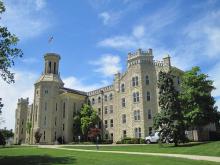
Wheaton College, Billy Graham’s alma mater and a top evangelical school, joined Catholic groups in a lawsuit against the Obama administration’s contraception mandate even as a federal judge’s ruling clouded prospects for such actions.
Wheaton, located west of Chicago, filed the suit Wednesday in the U.S. District Court of Washington, D.C., joining Catholic University of America, which launched its suit two months ago. The University of Notre Dame and dozens of other religious organizations, mainly Catholic, have also filed suits in federal courts around the country to overturn the mandate.
Wheaton is represented by the Becket Fund for Religious Liberty, a legal advocacy group that has spearheaded many of the challenges to the policy, which will require most employer health insurance plans to provide birth control coverage.
The mandate, issued by the Health and Human Services Department, goes into effect on Aug. 1, but most religious organizations have a year’s grace period while they try to work out an acceptable accommodation with the administration.

I haven't written about the discovery of the Higgs Boson particle yet. I think I posted about it on Facebook or Pinterest or somewhere like that. I'm excited by the discovery. Actually, I'm excited by discovery in general. Discovery is good stewardship. This particular discovery is particularly intriguing (Get it? I used "particular" since we're talking about particles! I'm so clever in the morning.).
So, let me begin with a simple prayer. I want to get into this a bit.
God of the moon, God of the sun,
God of the globe, God of the stars,
God of the waters, the land, and the skies,
Who ordained to us the King of promise.
It was Mary fair who went upon her knee,
It was the King of life who went upon her lap,
Darkness and tears were set behind,
And the star of guidance went up early.
Illumed the land, illumed the world,
Illumed doldrum and current,
Grief was laid and joy was raised,
Music was set up with harp and pedal harp.
The Christian Post reports:
"A new ABC/Washington Post poll released Monday highlights the differences between Americans who believe racial and religious discriminations are non-issues today versus those who feel racism is a factor in selecting our elected leaders. The poll is timely given that its findings apply to both presidential candidates: incumbent Barack Obama, the first African-American U.S. president, and former Massachusetts Gov. Mitt Romney, who if elected would be the first Mormon U.S. president.
According to the poll, 62 percent of non-blacks do not see racial discrimination as a predominant issue in their communities. Among this group, 59 percent favor Romney while 34 percent back Obama.

Seventh-day Adventists have filed a federal lawsuit challenging the constitutionality of two ordinances in an Alabama city that the church says bars it and other religious groups from door-to-door solicitations unless they first register and pay license fees.
The lawsuit was filed after a member of the church's Summer Student Missionary Program was ticketed in June by a police officer for selling books door-to-door without a City of Alabaster permit, the lawsuit states. After the citation, the group suspended its program in Alabaster, which is about 20 miles south of Birmingham.
"The City of Alabaster has enacted two sweeping ordinances that unconstitutionally restrict the exchange of beliefs and religious principles within the Alabaster city limits," the lawsuit states. The ordinances were enacted in 1994.
The lawsuit seeks a court order that declares the ordinances unconstitutional and bars the city from enforcing them.
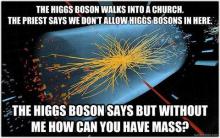
Thanks to Steve Knight for alerting me to this joke, which has become one of my instant favorites. After all, it combines two things I dig: nerd humor and theology (also nerdy).
Yeah, yeah, you may be groaning, but you’re smiling while doing it. Admit it.
There’s plenty of chatter lately about the so-called “God Particle,” recently discovered , with some in the scientific field actually calling it the “goddamn particle,” because (at least as I understand it) the discovery opens up the possibility of something without detectable mass actually giving mass to other particles.
Kind of like: In the beginning there was nothing, and then…
Sound familiar?

The Higgs boson is perhaps better known by its sexier nickname: the "God particle."
But in fact, many scientists, including the physicist for whom it is named, dislike the term.
In 1993 when American physicist Leon Lederman was writing a book on the Higgs boson, he dubbed it "the goddamn particle." An editor suggested "the God particle" instead.
One thing is clear: The July 4 discovery that marked a new chapter in scientific knowledge also reignited debate over the universe’s origins — and the validity of religious faith as scientific knowledge expands.
The Higgs boson explains why particles have mass — and in turn why we exist. Without the boson, the universe would have no physical matter, only energy.
The cosmological implications are hotly debated. Can God fit in a scientific story of creation?

Ongoing violence in Nigeria has exacerbated tensions between the country's Muslims and Christians. Nigeria has equal numbers of Christians and Muslims, and 92 percent of the country's population says they pray every day, according to a 2010 poll by the Pew Forum on Religion & Public Life.
Hundreds of Christians and Muslims have died this year alone, including scores killed last weekend (July 7-8) when Muslim militants attacked Christian villages in the nation’s central plateau, where the mostly Muslim north and the mostly Christian south meet.
Read five things you should know about the violence in Nigeria inside the blog...

We elect a president every four years, but perhaps we also elect a high priest. Ever since George Washington spontaneously added “so help me God” to his inaugural oath, Americans have expected their presidents to believe in, worship and publicly invoke God....
History suggests, however, that piety and presidential performance don’t always match. Some of America’s most religious presidents have been its most brutal. And two of its greatest presidents wouldn’t even be considered Christians today, scholars say.
Consider Abraham Lincoln, who is widely acknowledged as one of the nation’s three greatest presidents, along with Washington and Franklin Delano Roosevelt. But Lincoln, who never joined a church, was not a Christian, says Niels C. Nielsen, author of God in the Obama Era.
“Lincoln believed in an active God, he believed in providence. But if you asked Lincoln if he believed in the deity of Jesus, he would have said no,” Nielsen says.
Or look at Roosevelt, who is virtually a national saint. With his perpetual grin and a cigarette holder perched jauntily in his mouth, he guided the nation through the Great Depression and World War II. His legacy is built on his New Deal, an array of programs that protected the poor and elderly from the abuses of unrestrained capitalism.
But Roosevelt was no saint in his personal life. He rarely talked publicly about his Episcopal faith, preferred golf over church (before he was stricken by polio), and likely cheated on his wife, scholars say.
Read Blake's report — which also examines the faith of Lyndon Johnson, Richard Nixon, Andrew Jackson, Thomas Jefferson and Barack Obama — HERE.
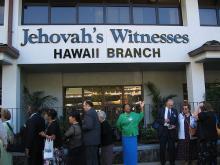
HUNTSVILLE, Ala. — When it comes time for family study hour at Chad and Charlotte Tate's home in Huntsville, Ala., Evan, 18 months, is quick to grab her Bible and climb onto her seat at the table.
As Jehovah's Witnesses, the Tates believe it's never too early to help children begin learning the Bible.
"That's one of the things we really like about Jehovah's Witnesses," said Chad Tate, smiling as he watched his son, Tucker, 12, help boost his sister onto the table's bench. "We worship together and we study together as a family."
The small size of Kingdom Hall congregations, which are kept to around 100 members, emphasis on witnessing, and lack of paid clergy have helped Jehovah's Witnesses become one of the fastest growing faiths in the world.
Jehovah's Witnesses now have more than 1.1 million U.S. members and are one of the country's fastest-growing denominations, with personal evangelism required of all members.
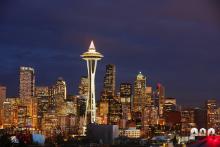
SEATTLE — In 1962, when my younger brother was just four years old, this city perched on the nation's northwest rim held a World's Fair that imagined a glistening future.
Grounded in a vision of science and technology, the Century 21 Exposition foresaw a steady economic expansion and an orderly modernity that would continue 1950s prosperity and stability far into the future.
They got the science and technology right. Seattle is now a world hub for software development and Internet commerce, as well as for the caffeine and jeans-clad lifestyle that fuel young techs.
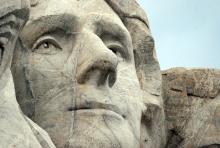
During a recent trip to Washington, D.C., I took in two exhibits on Thomas Jefferson at the Smithsonian's National Museum of American History: one on slaves at Monticello and the other on the cut-and-paste version of the Gospels known as the Jefferson Bible.
In the first exhibit, I was informed that our third president likely fathered children with his slave Sally Hemings. In the second, I was told that the Jefferson Bible was a "revolutionary document."
This is the sort of stuff that drives David Barton mad. Barton is an evangelical minister and the founder of WallBuilders, a "pro-family" organization dedicated, according to its website, to "presenting America's forgotten history and heroes, with an emphasis on the moral, religious and constitutional foundation on which America was built." Like many of his fellow travelers on the Christian right, Barton is convinced that his heroes are under attack, and he has no intention of turning the other cheek.
In his new book, The Jefferson Lies, Barton argues that academics have spread a series of falsehoods about Jefferson — that he was a racist, a secularist and an advocate of strict church/state separation. Barton thinks he knows better. His Jefferson, who died (appropriately enough) on July 4, 1826, wasn't just an "American hero." He was an orthodox Christian, too.
Lionized by Glenn Beck and other social conservatives, Barton is a culture warrior driven by desire rather than by evidence. As a result, his writing is more "truthy" than "truthful."